55 years after Reagan took on Berkeley, Newsom stays in the background amid roiling campus protests
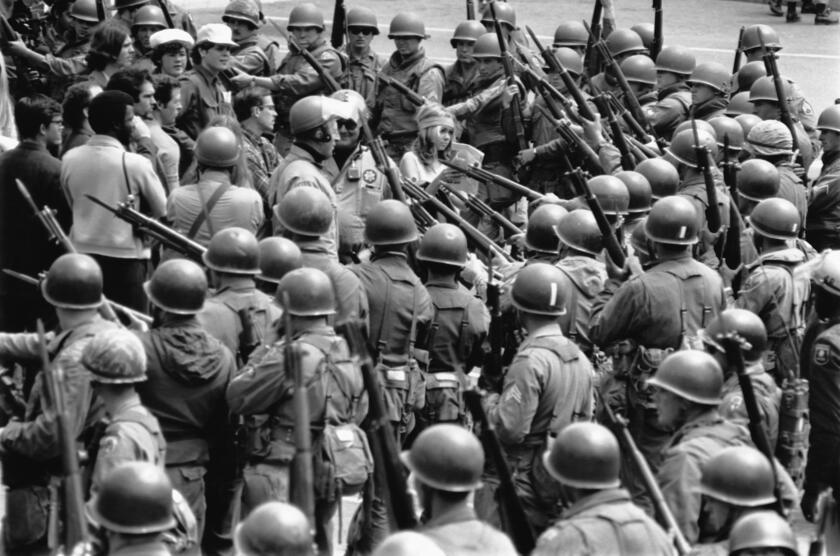
In May 1969 a National Guard helicopter hung over the campus of UC Berkeley, spraying protesters with what The Times then described as “heavy clouds of tear gas.”
It was the sixth consecutive day of campus demonstrations over plans to develop the land known as “People’s Park.” An ambitious governor who would go on to become president had called in 2,300 National Guard troops and hundreds of Highway Patrolmen. They brought shotguns, rifles and bayonets.
The problems, then-Gov. Ronald Reagan said in a feisty televised appearance, all started because universities "let young people think they had the right to choose the laws they would obey, as long as they were doing it in the name of social protest."
Reagan was unapologetic in his response to protests on the campus, which was also home to large demonstrations against the Vietnam War. He called student protests "orgies of destruction."
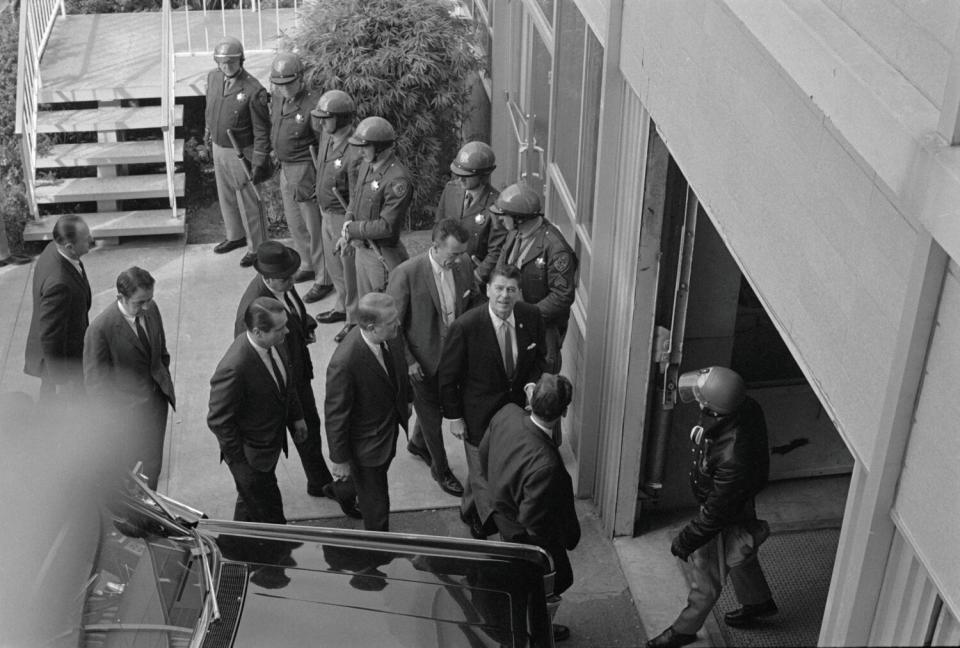
Almost exactly 55 years later, California campuses are again overwhelmed by student uprisings and police crackdowns, including violent clashes last week at UCLA. This time, over the Israel-Hamas war.
And another ambitious California governor is responding with a very different approach.
Gov. Gavin Newsom has lingered in the background as universities grapple with student protests, which have led to at least 200 arrests at UCLA, three injuries at UC Berkeley and forced classes to move online at Cal Poly Humboldt.
While he’s met privately with law enforcement officials and university leaders, Newsom has yet to speak to the news media about the unrest. He directed the state's office of emergency services to support police response on campuses when requested by local agencies, but did not activate the National Guard. He took to social media last week to condemn the violence at UCLA, with a written statement saying "The right to free speech does not extend to inciting violence, vandalism or lawlessness on campus."
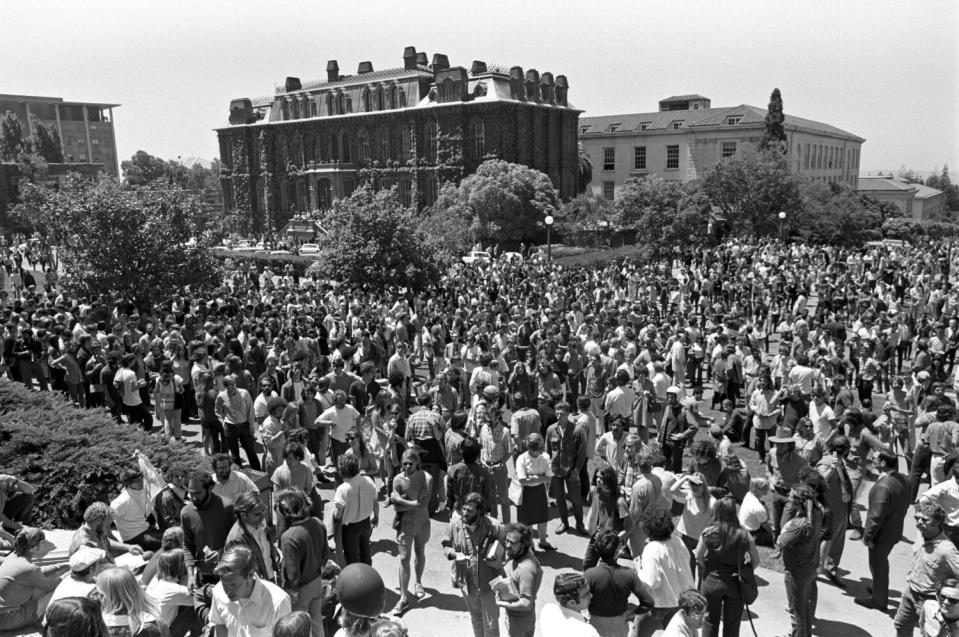
On Thursday, hours after the arrests at UCLA, Newsom posted a video promoting expanded national monuments that showed him at a creek beneath the trees on a sun-drenched hillside — a move seen by some as tone-deaf.
For a governor who is rarely shy about grabbing the spotlight on controversial issues, including new abortion restrictions and mass shootings, Newsom’s response to the campus upheaval has been noticeably low-key.
Reagan and Newsom are political opposites and led California at very different times. In many ways, their divergent responses to campus unrest reflect how they presented themselves to the voters who elected them. Reagan, a Republican, ran for office during an earlier period of campus protests and had promised to "clean up the mess at Berkeley." Newsom, a Democrat, campaigned as a champion for legalizing marijuana and gay marriage, and supported ending California's decades-old tough-on-crime policies.
But the responses also reflect different political eras and highlight the complexities posed by the Israel-Hamas war, particularly for Democrats.
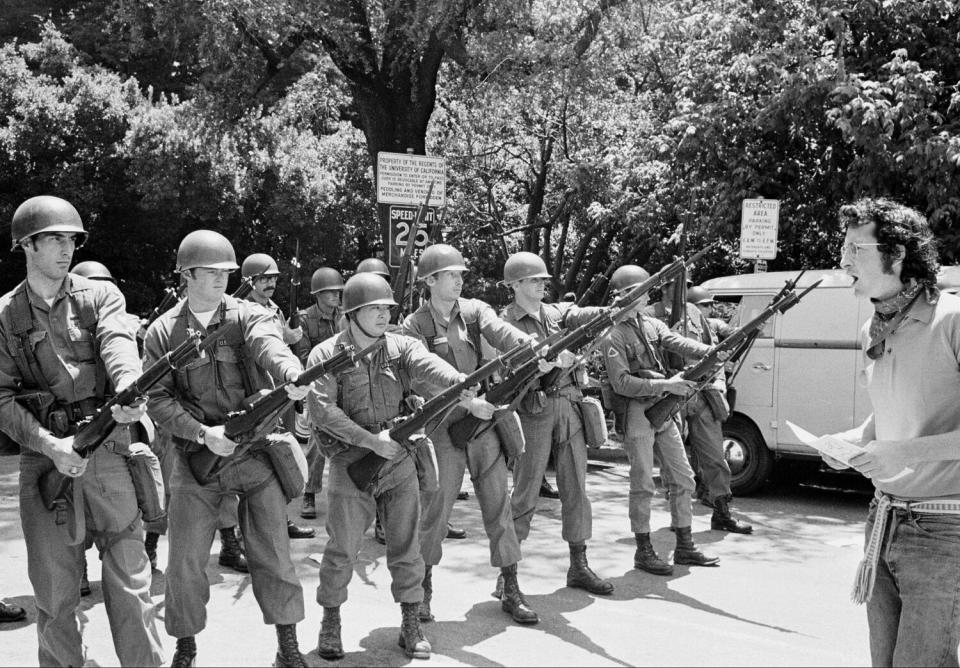
"Reagan's moves fit the political environment and the political dynamic of the time," said Sherry Bebitch Jeffe, a retired professor at the Sol Price School of Public Policy at USC.
"Newsom understands that if he [gets] out front, he risks alienating, at this point in time, critical constituencies he doesn't have to."
Young people, progressives, people of color and Jewish voters are all important constituencies for Democrats, Bebitch Jeffe said, but the party is split over President Biden's response to the Israel-Hamas war.
Read more: As protests roil college campuses, young voters' support for Biden hangs in the balance
The divisions have created an opening for Republicans, even in Sacramento where they lack power. That didn't stop GOP leaders from calling a news conference in the state Capitol last week to call for cutting state funding for administrators at campuses where protests turned violent, and rescinding Cal Grant scholarships from students engaged in criminal acts.
"It's unacceptable that our governor has largely said very little about this and taken very little action to quell what has been going on on our campuses," Assembly Republican leader James Gallagher (R-Yuba City) said Thursday.
Some Democrats have been raising alarms about the climate on California campuses for months.
In a letter in November, a month after Hamas attacked Israel, members of the California Legislative Jewish Caucus called for "immediate action" from University of California President Michael V. Drake and California State University Chancellor Mildred García to protect Jewish students from what they called an "explosion of antisemitism."
Newsom, too, sent the university leaders a letter then calling on them to do more to stop threats against students who were "targeted because of a Jewish, Arab, or Muslim identity." He wrote that "some faculty have inflamed the discourse with violent rhetoric. This is unacceptable and demands action."
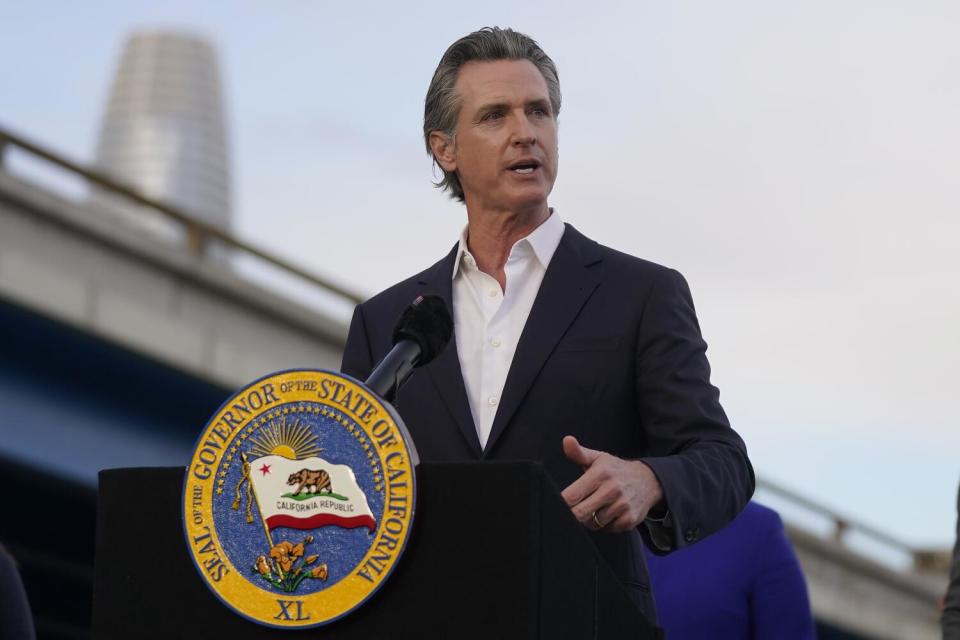
In March, well before the protests had reached the level of violence they did this past week, the Jewish caucus introduced a bill that would require California college leaders to adopt policies “prohibiting violence, harassment, intimidation and harassment” specifically when it comes to any events that “call for or support genocide."
Democrats leading the legislation have emphasized that they aren't trying to limit free speech, but the American Civil Liberties Union opposed the bill, saying it goes further than federal laws that already do not protect hate speech or violence under the 1st Amendment and that it could allow universities to “silence a range of protected speech based on viewpoint alone.”
Sen. Scott Wiener (D-San Francisco), who is a co-author of the campus bill and signed the letter to university leadership, said he supports the right to protest, especially on college campuses.
But what's happening now "crosses a line," he said.
“What’s different here is in addition to the protest, we have the targeting harassment of one specific group of students — Jewish students," he said. “I want them to be able to protest the war in Gaza and to call for a cease-fire and to call for peace. … that's healthy. But you have some people who are going well beyond that and saying antisemitic things, and it is undermining what they’re actually protesting for."
Read more: 'I've been terrified.' Student fears triggered by Israeli-Palestinian conflict skyrocket
The governor has taken quiet actions in recent weeks by convening Jewish and Muslim leaders, publishing a plan to combat antisemitism and communicating with Palestinian American communities about Islamophopia. He has said he supports Biden's call for a cease-fire in Gaza.
Newsom has no direct authority over California's public universities, but does exert influence as an ex officio member of the UC regents and the Cal State Board of Trustees. That gives him some responsibility for what happens on campus, said Bill Whalen, a fellow at Stanford's Hoover Institute who was a speechwriter for GOP Gov. Pete Wilson.
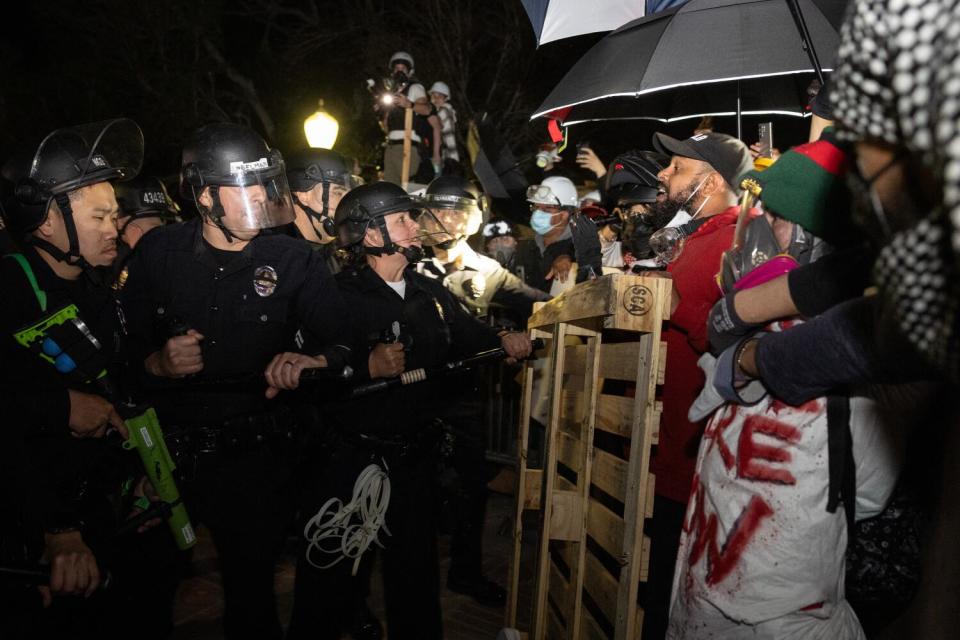
"The governor technically is the landlord of these operations," Whalen said. "Even if he's behind the scenes, you would hope that he is very active."
But the politics within the Democratic Party make it difficult for him to be too forceful, Bebitch Jeffe said. Newsom is supporting Biden's reelection campaign while also navigating divisions among Democratic voters who are torn over U.S. support for Israel.
"If you're Gavin Newsom and you don't know whether it will help or hurt you, just leave the battlefield," Bebitch Jeffe said. "And that's apparently what he's done."
Times librarian Scott Wilson contributed research for this article.
This story originally appeared in Los Angeles Times.


